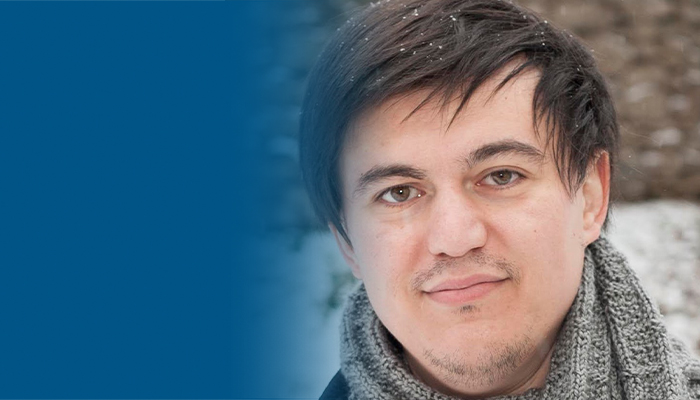HOW CAN WE HELP YOU? Call 1-800-TRY-CHOP
In This Section
Diversity Month: Q&A With Featured Research Staff Member, Gennadiy Fonar, PhD

Gennadiy Fonar, PhD, is the Featured Research Staff Member for Diversity Month.
Editor's Note: Our Featured Research Staff Member for April, Diversity Month, is Gennadiy Fonar, PhD. Dr. Fonar is a lab manager and research associate in the laboratory of Christopher Thom, MD, PhD, of the Division of Neonatology. Dr. Fonar received a BS in Biology from Technion-Israel Institute of Technology and a PhD in Medical Sciences at Bar Ilan University in Israel. He also completed postdoctoral fellowships at The Hebrew University of Jerusalem and the University of Pennsylvania. In this Q&A, he discusses his research, his experience at Children's Hospital of Philadelphia, and his thoughts on Diversity Month.
What message do you hope people take away from celebrating Diversity Month?
I was born in Ukraine, where I was considered different because I am Jewish. I moved to Israel, where my religion wasn't an issue — instead, the issue was that I came from Ukraine. After that experience, celebrating and promoting diversity is important to me. I am a member of the CHOP International Postdoc Committee, and our efforts include helping all international postdocs and promoting awareness of other people's culture and traditions. I hope that events like Diversity Month help people to be more open-minded and less stigmatized toward others who are different.
What are some research projects you're currently working on? Why is your work important?
I'm working on finding new and exciting roles of actin stabilizing protein tropomyosin during blood development. We hope to show that in addition to being important in cytoskeletal functioning, it plays a major role in hematopoiesis as well. Our findings can help optimize the process of induced pluripotent stem cells-based blood manufacturing.
What are some of the most salient training experiences you've had at CHOP thus far?
I learned how to use a confocal microscope. Although I was familiar with it from my previous jobs, I hadn't used the specific model that I had to operate. My colleague provided the required training in a friendly and efficient manner. Even after the training, he remained available to provide help when it was needed.
Aside from research, what do you consider your biggest accomplishment?
I consider my help to the community as a big accomplishment. Back in Israel, I volunteered in an elderly home, teaching the tenants photography. Here in the U.S., since the war in Ukraine started, my wife and I are busy collecting donations and helping the people of Ukraine in their time of need.
What do you do for fun when you're not working?
I enjoy photography, cycling, and reading a good book. Before devoting myself to science, I considered a career as a photographer. I took part in a few exhibitions and photo contests and worked part-time as a party photographer while earning my bachelor's degree. After teaching photography to the elderly, I switched to teaching it to my kids.


